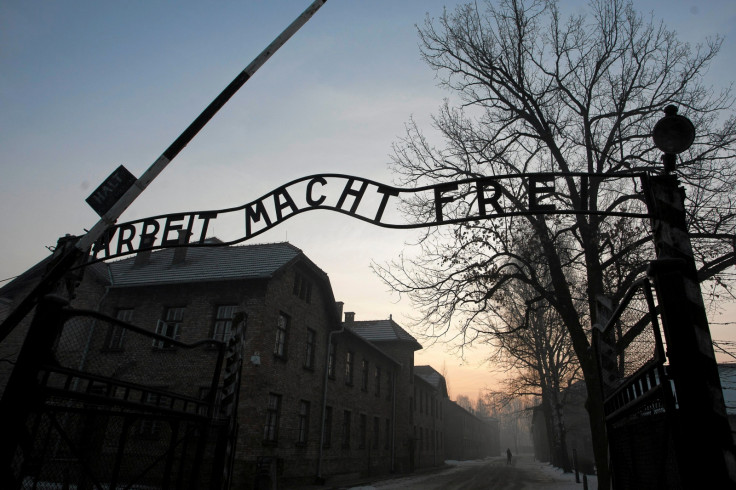'I was murdered in Auschwitz:' Haunting Twitter account names Jewish refugees turned away by the US
During the war and Holocaust, 254 of the former passengers of MS St Louis were killed.
On International Holocaust Remembrance Day, political leaders, survivors and people around the world honour the millions killed under the Nazi regime. One Twitter account on Friday (27 January) shared the names and heartbreaking stories of refugees who fled Nazi Germany in 1939 on the MS St Louis.
The passengers on board the German transatlantic liner were denied entry into Cuba and the United States and were forced to return to Europe. According to the United States Holocaust Memorial Museum, Great Britain, France, the Netherlands and Belgium agreed to take the refugees when it returned. Of the 937 people on board, most of whom were Jews, 532 were trapped in German-controlled territory as the Nazis invaded western Europe.
During the war and Holocaust, 254 of the former passengers were killed.
Created by Jewish educators Russel Neiss and Charlie Schwartz, the @Stl_Manifest Twitter account posted names, place of death and, at times, photographs of the passengers who were turned away at the US border using information from the US Holocaust museum.
The project's description reads: "On Holocaust Remembrance Day #WeRemember the victims of Naziism turned away at the doorstep of America in 1939. #RefugeesWelcome."
"My name is Sibyll Grünthal," one tweet reads, accompanied by the photo of two smiling young women. "The US turned me away at the border in 1939. I was murdered in Auschwitz."
"There's a ritual around not only Holocaust remembrance, but other remembrances too, where one of the things you do is you read the names of the victims," Neiss told Time magazine. "What does it look like to recreate this ritual for a digital age?"

The haunting and powerful tweets are particularly poignant now as US President Donald Trump signed an executive order on Friday to temporarily suspend the entire US refugee programme, ban refugees fleeing the conflict in Syria from entering the US and impose a temporary ban on refugees from six other Muslim-majority countries such as Iraq, Yemen, Libya and Somalia.
A statement from President Trump to commemorate the anniversary of the liberation of Auschwitz on Friday did not include any mention of Jews, Judaism or the anti-Semitism that led to the mass genocide over 70 years ago.
Trump WH statement on Holocaust Remembrance Day makes no mention of Jews or Jewish community. Last year, Obama said "We are all Jews." pic.twitter.com/SNpuhpBZ1Z
— Peter Alexander (@PeterAlexander) January 27, 2017
"People always say that if you forget history then you will be doomed to repeat it," Neiss told The Atlantic. "This is one of those moments where history gives us an opportunity to think about where we are now. When folks say 'never again' or 'we remember,' it is important for us to actually do so.
"There were legitimate concerns about immigration in the 1930s and 1940s, but people forget sometimes that those legitimate concerns often have life or death implications for people."
My name is Joachim Hirsch. The US turned me away at the border in 1939. I was murdered in Auschwitz pic.twitter.com/pfvJtMpIps
— St. Louis Manifest (@Stl_Manifest) January 27, 2017
My name is Irmgard Köppel. The US turned me away at the border in 1939. I was murdered in Auschwitz pic.twitter.com/s0ZWjsdYG9
— St. Louis Manifest (@Stl_Manifest) January 27, 2017
My name is Erich Dublon. The US turned me away at the border in 1939. I was murdered at Auschwitz pic.twitter.com/wlVcCiUt2P
— St. Louis Manifest (@Stl_Manifest) January 27, 2017
My name is Horst Rotholz. The US turned me away at the border in 1939. I was murdered in Auschwitz pic.twitter.com/2qoCtYrnFN
— St. Louis Manifest (@Stl_Manifest) January 27, 2017
My name is Lutz Grünthal. The US turned me away at the border in 1939. I was murdered in Auschwitz pic.twitter.com/DyS8NXrk2P
— St. Louis Manifest (@Stl_Manifest) January 27, 2017
My name is Evelyn Greve. The US turned me away at the border in 1939. I was murdered at Italy pic.twitter.com/j8qEfw1rj3
— St. Louis Manifest (@Stl_Manifest) January 27, 2017
At the time of publication, the account has garnered over 40,000 followers on Twitter.
The US State Department held an official ceremony in 2012 to publicly apologise for turning away the refugee ship and invited the survivors of the MS St Louis to share their stories.
Eva Wiener, the youngest survivor who was two years old when the ship was denied entry, said, "We who have come to the US had to come to terms with what it would be like to enter a country that began by rejecting us."
"I have accepted the fact that the government of 1939 was not the government of 1946 when I arrived here," Wiener said. "Thank goodness eyes were opened,not completely,but somewhat and I was then allowed to come to the United States and establish my life and pursue my dreams."
Neiss said the United States is a country built by immigrants and is made stronger because of it.
"This story is an opportunity to remember when the American government, I think, did not live up to its ideals," Neiss said. "And if we're not living up to our ideals today, then that's something to think about."
© Copyright IBTimes 2024. All rights reserved.





